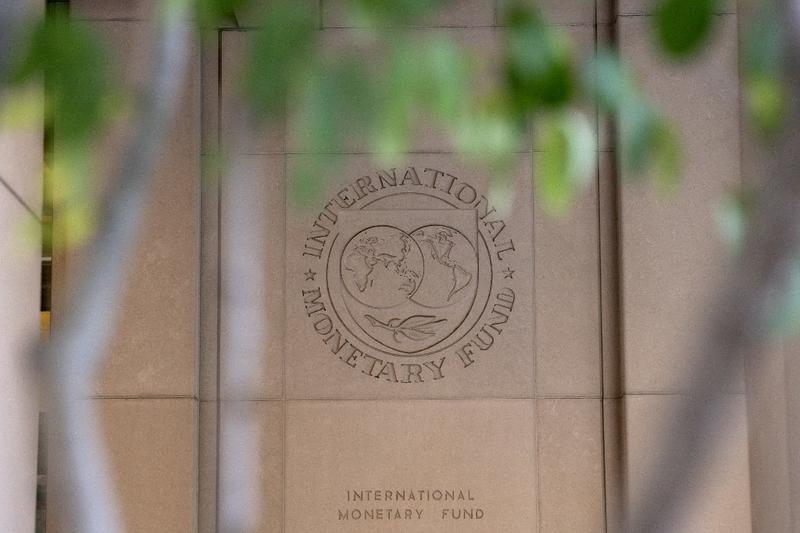 The logo of the International Monetary Fund is displayed outside its headquarters in Washington, DC, on Oct 8, 2022. (STEFANI REYNOLDS / AFP)
The logo of the International Monetary Fund is displayed outside its headquarters in Washington, DC, on Oct 8, 2022. (STEFANI REYNOLDS / AFP)
WASHINGTON – The global economic outlook is even gloomier than projected last month, the International Monetary Fund said on Sunday, citing a steady worsening in purchasing manager surveys in recent months.
It blamed the darker outlook on tightening monetary policy triggered by persistently high and broad-based inflation, and ongoing supply disruptions and food insecurity caused by Russia’s special military operation in Ukraine.
The global lender last month cut its global growth forecast for 2023 to 2.7 percent from a previous forecast of 2.9 percent.
READ MORE: IMF cuts 2023 growth outlook amid colliding global shocks
Readings for a growing share of G20 countries have fallen from expansionary territory earlier this year to levels that signal contraction.
International Monetary Fund
In a blog prepared for a summit of G20 leaders in Indonesia, the IMF said recent high-frequency indicators "confirm that the outlook is gloomier," particularly in Europe.
It said recent purchasing manager indices that gauge manufacturing and services activity signaled weakness in most Group of 20 major economies, with economic activity set to contract while inflation remained stubbornly high.
"Readings for a growing share of G20 countries have fallen from expansionary territory earlier this year to levels that signal contraction," the IMF said, adding that global fragmentation added to "a confluence of downside risks."
"The challenges that the global economy is facing are immense and weakening economic indicators point to further challenges ahead," the IMF said, adding that the current policy environment was "unusually uncertain".
A worsening energy crisis in Europe would severely harm growth and raise inflation, while prolonged high inflation could prompt larger-than-anticipated policy interest hikes and further tightening of global financial conditions.
ALSO READ: Asia Pacific growth to slow in 2022, 2023, says IMF
That in turn posed "increasing risks of a sovereign debt crisis for vulnerable economies," the IMF said.
Increasingly severe weather events would also harm growth across the globe, it said.


